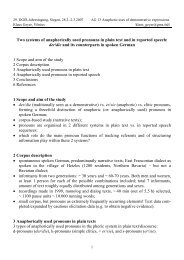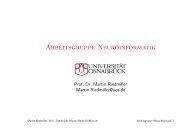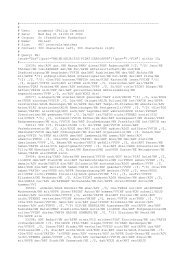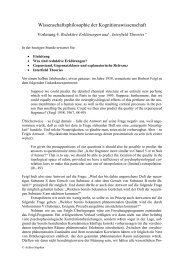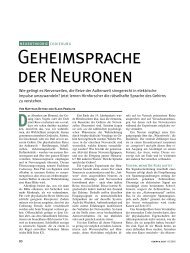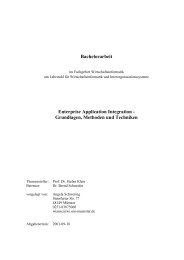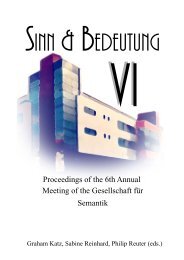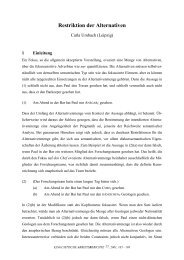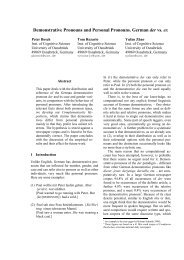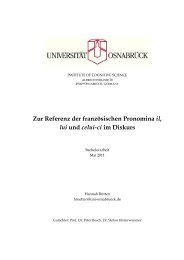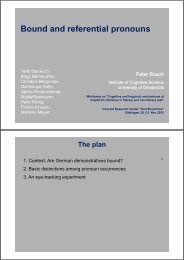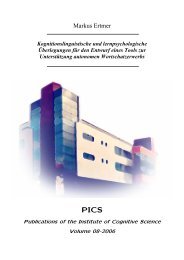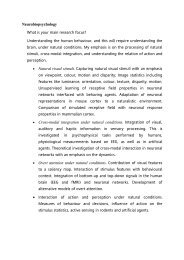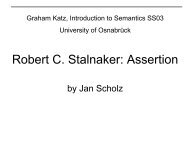Weak definites and German preposition - Cognitive Science
Weak definites and German preposition - Cognitive Science
Weak definites and German preposition - Cognitive Science
Create successful ePaper yourself
Turn your PDF publications into a flip-book with our unique Google optimized e-Paper software.
Abstract situations <strong>and</strong> types<br />
39<br />
If you can go along with the book lending story, we can probably<br />
agree that abstract situations, as conceptual entities, are not<br />
given once <strong>and</strong> for all, but can be set up in suitable contexts,<br />
where certain differences don't matter that do matter in other<br />
contexts.<br />
And if abstract situations are in this sense dynamic, then the<br />
restrictions on weak <strong>definites</strong> that come from their head nouns<br />
are not lexical, but conceptual restrictions, <strong>and</strong> weak definite<br />
uses are clearly productive.<br />
Abstract situations <strong>and</strong> types<br />
The denotation of a definite determiner, <strong>and</strong> also of a weak<br />
definite determiner <strong>and</strong> the <strong>German</strong> <strong>preposition</strong>al determiner<br />
requires as its argument a property that is unique in the current<br />
domain.<br />
For regular referential phrases the uniqueness is a uniqueness<br />
of instantiation, i.e., a unique discourse referent.<br />
3<br />
9<br />
4<br />
0<br />
40



